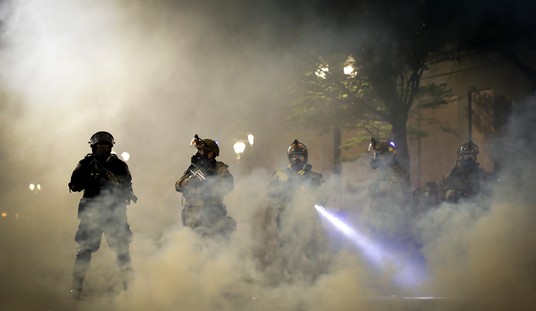As the Donald Trump, Jr.-Russian lawyer/spy/whatever storyline has spiraled out of control, Trump defenders have been reprising, and turning the volume up on, their charges of media bias and the fight of the century being Trump and Real AmericaTM versus Acela corridor elites who spend their days in cable news greenrooms and legacy media newsrooms.
Conservatives are well-accustomed to facing down the media as a chief adversary, so it’s a talking point that’s bound to resonate to a degree, even with conservatives who don’t like the President or his eldest son.
As has been observed, the media really doesn’t “get” religion (why the “Get Religion” blog of that same name has a catchy title).
Most political reporters come to their jobs from places (cities, universities, families) where liberal perspectives dominate.
With a few exceptions, reporters don’t have actual experience of serving in the military or being a military spouse, or parent, or child.
All that tends to result in some challenges for those making conservative public policy arguments. But they are surmountable with hard work.
Here’s the real problem with the media that’s become a far greater challenge than bias, and one that everyone—from those of us who consume and opine on the news, to those featured by the news, to millions of passive consumers of it—is having to cope with: In an increasingly cluttered, 24-hour-a-day non-stop media environment, reporters are even more incentivized to publish the most sensational, click-baity things they can, often working to unrealistic, ridiculous, and multiple deadlines. It seems that more and more, a consequence is that they’re running things with sketchy sourcing that compromises the quality of their reporting, and lends credibility to claims of #fakenews or #fraudnews.
At the national level, we’ve seen a couple of very prominent examples of this.
There was, of course, the infamous and fairly recent example of CNN botching a Russia story and three people exiting the organization over the screwup. That occurred because CNN relied on one anonymous source for the story.
We’ve also recently had the example of the New York Times referring to agreement of “all 17 organizations in the American intelligence community” about Russian interference in the election. In fact, the correct number was four. In this case, the single source appears to have been Hillary Clinton, who threw the number 17 out in a debate.
And, of course, the New York Times erroneously blamed Sarah Palin for inspiring the shooter of then-Rep. Gabby Giffords, a claim that wasn’t sourced at all (unless you count urban legends as sourcing).
On which subject, NPR erroneously reported in 2011 that Giffords had been shot and killed at her now-infamous Congress on the Corner event. NPR never seemed to have figured out where the “and killed” came from in its story, but their cleanup piece kind of made it sound like it could have come from a former NPR employee tipped off by his wife, who was shopping at the Safeway at which the shooting went down.
It happens at the local level, too, and that’s arguably even more problematic. Trust in CNN is evidently not sky-high; trust in networks (whose nightly news is abutted by local news) is higher; and more people still watch local news (which suggests they trust it more) than network or cable news. Local TV is spending more, not less, on reporting. That wouldn’t really be feasible if it didn’t have an audience that trusted it. But that trust in local news, TV or print, may not be more warranted than trust in MSNBC, CNN or Fox News.
If you live in South Dakota, your local newspaper has recently screwed up, epically. The paper had to retract 11—that’s right, eleven—articles because of dodgy sourcing. In one case, it seems the writer in question made up the name of a source, but according to her, she just messed up the name. In other cases, “quotes and information… could not be verified.” That sounds like a sourcing, and a rush-to-file-copy problem, as well as potentially a dishonesty one.
If you live in Nashville, you may have recently seen a series put together by WSMV about a correctional facility in the area. The the sourcing for this series also looks shaky, and… colorful.
One of WSMV’s primary sources was a lady named Jacque Steubbel. Steubbel is a former reporter also known as Jacque Srouji who was fired from the Tennessean newspaper decades ago for apparently moonlighting as an FBI informant. She also apparently had a relationship with a Soviet Embassy official who was also a KGB agent, and informed to the FBI on lefties she was covering and had reportedly befriended so as to shield them “from the full force of the FBI’s wrath” (or so people close to her conjectured). There’s speculation that she went out of her way to discredit Karen Silkwood by including a bunch of stuff in a book she wrote about Silkwood’s supposed lesbianism. She also married a Palestinian guy, adopted a fake Palestinian name, and reportedly got involved with the local Palestianian movement, and reportedly helped organize National Solidarity Day for Cuba celebrations, too. Steubbel was also charged with felony theft in 1999. So, a lot of WSMV’s story apparently rests on sourcing from someone with ethical issues who appears to be a bit of a nut job with a desperate need to be treated as important and change-making. That’s not really ideal, especially as another primary source for their series was a former chaplain who is rumored to have been fired for engaging in a sexual relationship with a prisoner.
Also in the category of “local media misreporting,” we have this stunner from a Texas newspaper called The Eagle. The Eagle actually ran a headline earlier this year claiming the HR McMaster was replacing Vice President Mike Pence, despite the fact that the story underneath the headline said he was replacing Mike Flynn.
And let’s never forget the example of Bay Area KTVU producers being fired for misreporting the names of the pilots of a crashed Asiana plane as “Sum Ting Wong, Wi Tu Lo, Ho Lee Fuk and Bang Ding Ow” (read aloud for full effect, and to understand why this was such a massive #headdesk moment for KTVU).
Yep. The media has a problem. But it may not be so much about bias as sloppiness, and getting too eager to piece together sensational, attention-grabbing stories and headlines, and cutting too many corners to do so.
Which is why you should read RedState. Obviously.














Join the conversation as a VIP Member